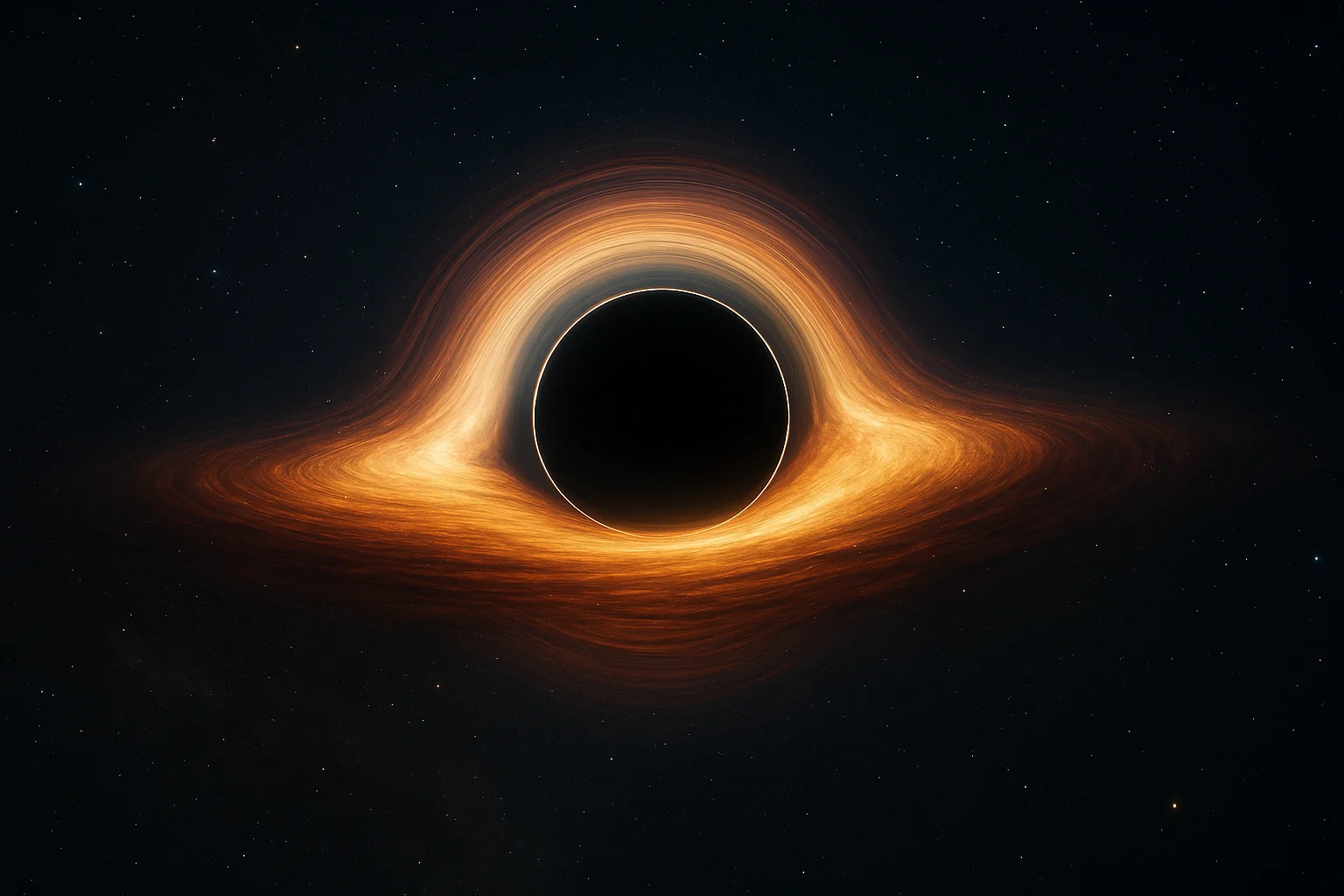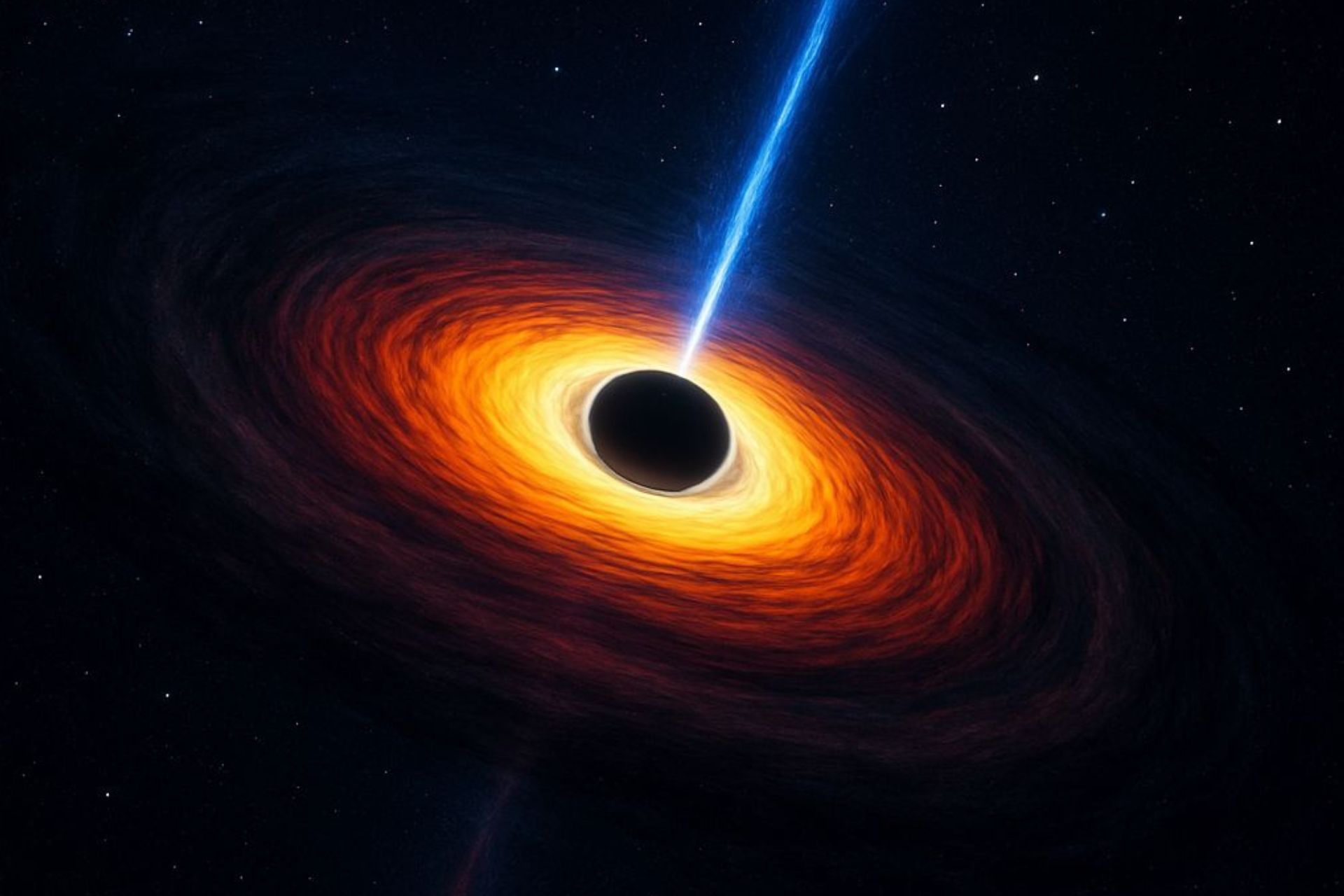MetaMotives
-
Comments (0)
-
4 min Read
What is a black hole? Let’s start with simple things.
When a very massive star, much bigger than our sun, exhausts its nuclear fuel and collapses under its own gravity, its outer layers blow off into space and the core gets pulled inward and contracts into a very small space — then a black hole is formed.
As a result, such an object is created that is so dense that even light cannot escape from it. Near the mouth of a black hole, all time becomes zero. The point at the mouth of the black hole is called the Event Horizon. If someone crosses this point, they are considered to be permanently lost from the universe — at least according to our mathematics.
There is something frightening and yet beautiful about black holes, which are spread across the entire universe — silent, invisible, and untouchable, possibly hiding answers to some of our biggest scientific questions.
As a result, such an object is created that is so dense that even light cannot escape from it. Near the mouth of a black hole, all time becomes zero. The point at the mouth of the black hole is called the Event Horizon. If someone crosses this point, they are considered to be permanently lost from the universe — at least according to our mathematics.
There is something frightening and yet beautiful about black holes, which are spread across the entire universe — silent, invisible, and untouchable, possibly hiding answers to some of our biggest scientific questions.
What happens inside this boundary?
From here on, everything is confusing.Relativity vs Quantum Physics:
The Tug-of-War of the Universe After entering a black hole, the two most trusted theories of our understanding of the universe start to clash.
Einstein’s general theory of relativity says that gravity can bend space and time. On a large scale, this theory works very well — planets, galaxies, even the bending of light.
According to this theory, there is a Singularity in the black hole: where density becomes infinite, space-time bends infinitely, and the laws of physics as we know them break down.
But quantum mechanics says, “Hold on a second!” In the microscopic world, infinity is not acceptable. The idea that information entering a black hole is permanently lost contradicts a fundamental principle of quantum theory — that information is never destroyed.
This conflict between the two theories is called the Black Hole Information Paradox. To solve this puzzle, a new unified theory of physics is needed — one that merges the laws of gravity and quantum mechanics. In short, “A Theory of Everything.”
But many times they show us our limits and expose the holes in our theories. And once we discover what lies at their center, we might realize that this entire universe is surrounded by concepts far more expanded, strange, and unique than we ever imagined. Even more than where our human imagination can reach.
That is an achievement for all of us.
According to this theory, there is a Singularity in the black hole: where density becomes infinite, space-time bends infinitely, and the laws of physics as we know them break down.
But quantum mechanics says, “Hold on a second!” In the microscopic world, infinity is not acceptable. The idea that information entering a black hole is permanently lost contradicts a fundamental principle of quantum theory — that information is never destroyed.
This conflict between the two theories is called the Black Hole Information Paradox. To solve this puzzle, a new unified theory of physics is needed — one that merges the laws of gravity and quantum mechanics. In short, “A Theory of Everything.”
So what’s really inside?
If we want to answer this question in simple terms, we still don’t know — but there are some fantastic ideas, such as:- Singularity: A point where gravity is infinite, with no space, no time, no end — only unimaginable density.
- A door to another universe: Some scientists have claimed that black holes may not be single entities but may contain multiple wormholes, which, once entered, might lead us to another place or even another universe.
- Firewall: According to a new scientific opinion, the event horizon may not be calm and simple — there is a possibility of intense radiation there, which would burn up anything entering in an instant.
Why is it important?
Many people are extremely curious about black holes. In fact, it’s easy to think of black holes as just fitting for science fiction, but the truth is that if we understand the puzzle, then many long-hidden and unsolved topics — like time, space, gravity, and the structure of the universe — could be unlocked.But many times they show us our limits and expose the holes in our theories. And once we discover what lies at their center, we might realize that this entire universe is surrounded by concepts far more expanded, strange, and unique than we ever imagined. Even more than where our human imagination can reach.
Final Thought: Peeking into the Darkness
Perhaps we may never be able to enter a black hole ourselves. Our telescopes may never see beyond the event horizon. But through mathematics, observation, and human curiosity, we are slowly reaching closer to the answers.That is an achievement for all of us.



